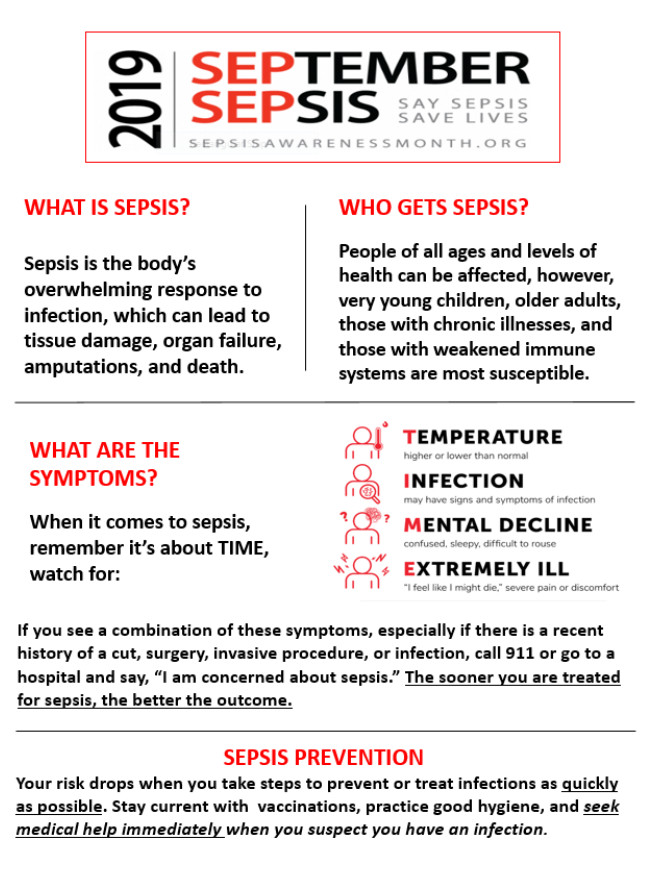What is sepsis?
Sepsis is the body’s overwhelming response to infection, which can lead to tissue damage, organ failure, amputations, and death.
Who gets sepsis?
People of all ages and levels of health can be affected, however, very young children, older adults, those with chronic illnesses, and those with weakened immune systems are most susceptible.
What are the symptoms?
When it comes to sepsis, remember it’s about TIME, watch for:
Temperature: Higher or lower than normal
Infection: May have signs and symptoms of infection.
Mental Decline: Confused, sleepy, difficult to rouse.
Extremely Ill: “I feel like I might die.” Severe pain or discomfort.
If you see a combination of these symptoms, especially if there is a recent history of a cut, surgery, invasive procedure, or infection, call 911 or go to a hospital and say, “I am concerned about sepsis.” The sooner you are treated for sepsis, the better the outcome.
Sepsis prevention
Your risk drops when you take steps to prevent or treat infections as quickly as possible. Stay current with vaccinations, practice good hygiene, and seek medical help immediately when you suspect you have an infection.
The Emergency Department at Cooper University Hospital provides treatment to patients with a broad spectrum of illnesses and injuries, some of which may be life-threatening and require immediate attention. If you are experiencing a true medical emergency, always go to the nearest emergency room or call 911.

